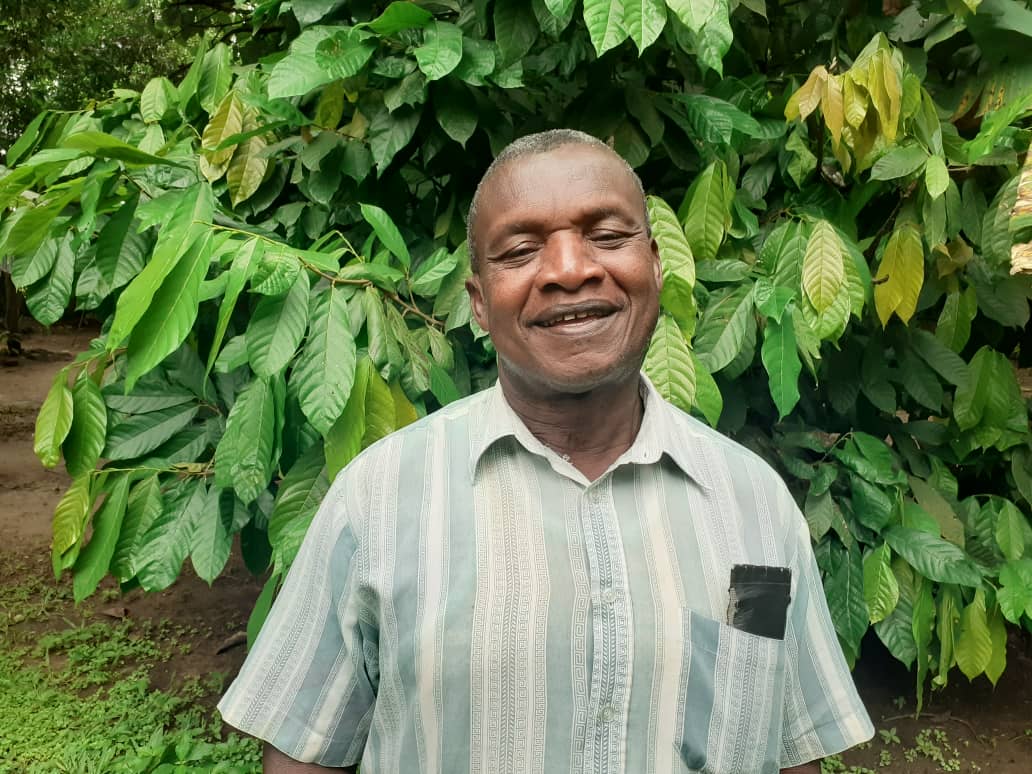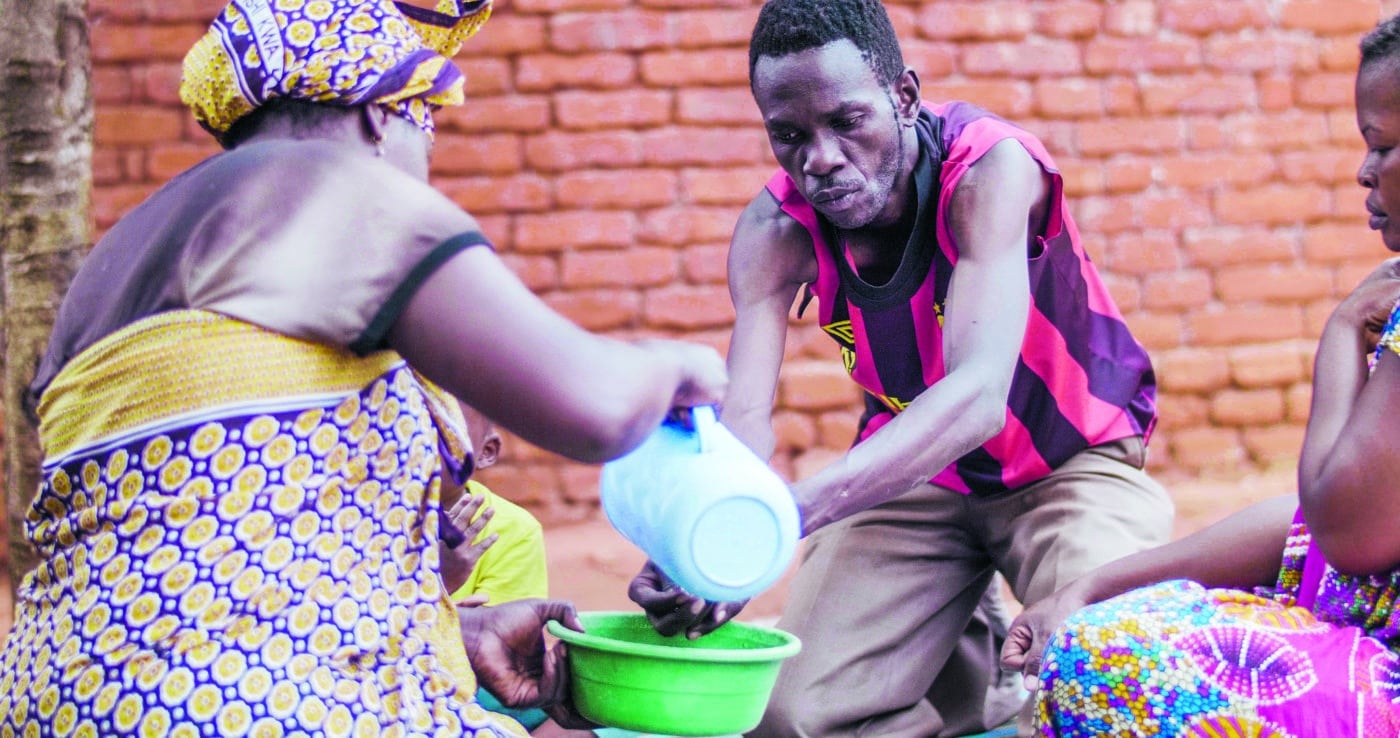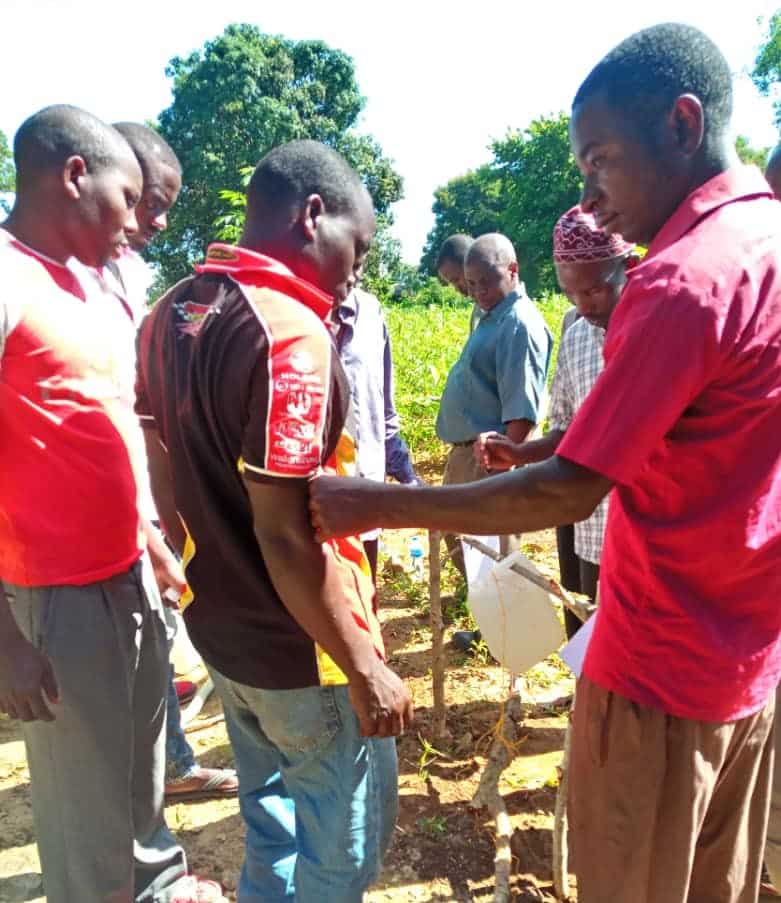We are Babbas of our communities standing up for safe water and sanitation
My name is Rayner. I am a father, a farmer and a member of Sole village in Kilombero, Tanzania.

In Sole village, water safety and sanitation are one of our challenges. Previous education provided to our community members hasn’t been enough, so the majority of our people still practice bad behaviours like open defecation, and they do not implement good sanitation.
Since the Healthier Lives, Happier Homes project ran in my community, a lot has changed in my life. I, and other household babbas, have been able to learn different ways of treating water, hand washing skills, proper sanitation, and have learnt how to adopt those skills in my home.

As babbas we have been able to conduct different activities in our communities, like building tippy taps, and educating each other on good practices of hygiene, water treatment and proper sanitation.
Although we can take it for granted, sanitation is a physical measure that has probably done more to increase human life span than any kind of drug or surgery. I think many people should join the movement to raise awareness on preserving sources of water, hygiene and sanitation because to make these practices viable and sustainable we need to join forces to save ourselves from communicable diseases.
I am excited for the future, especially because we babbas are not the only ambassadors for water and sanitation. Our children are empowered with knowledge and skills as SWASH Heroes to cascade hygiene behaviours in our community. I believe as they grow old, education around this topic will grow with them and we will have a healthier community for everyone.

The Healthier Lives, Happier Homes project was designed in partnership between Raleigh Tanzania and RB to change and improve behaviours around safe water, sanitation and hygiene in rural communities.
To achieve this, the project designed three interventions which would empower key people to become ambassadors for WASH. Working through primary school students (known as SWASH Heroes), household babbas and local vendors who stock hygiene products, the project is transforming hygiene behaviours for those who need it.
So far, the project has empowered 400 SWASH heroes and 78 vendors in 20 communities, as well as 199 household babbas in 10 communities. Together, these WASH ambassadors are creating a wave of change across rural Tanzania.
The ‘Healthier Lives, Happier Homes’ programme has been designed in partnership with 30 employees from RB. Find out more about the partnership and the creation of the innovative programme.



